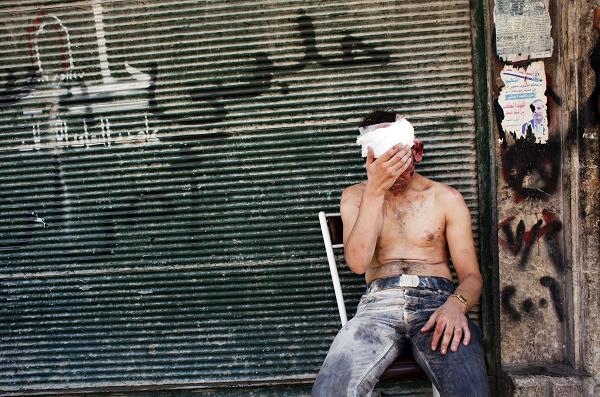CAIRO: The Iranian documentary “Execution of the Pharaoh, which portrays former Egyptian president Anwar El-Sadat as a traitor, is still making headlines, this time about the identity of its producers.
The media advisor in the Iranian diplomatic office in Cairo Karim Azizy told local newspapers that investigations by the Iranian authorities concluded that the movie is produced by Al-Jazeera TV station, and that it aired on the news channel several times two years ago.
Azizy added that an independent Iranian group, unaffiliated with the government, used the footage aired by Al-Jazeera, translated it into Farsi and changed the original name of the film to the “Execution of the Pharaoh.
The group also reportedly replaced the Al-Jazeera logo with their own, and distributed the film on CDs.
In his statement to local papers, Azizy insisted that the film has not been granted any permission for distribution from the Ministry of Culture and Islamic Guidance of Iran.
Azizy couldn’t be reached for comment when contacted by Daily News Egypt.
A source in Al-Jazeera’s Cairo office confirmed to Daily News Egypt that the Iranian film used the pan-Arab station’s own footage. However adding that the Iranian filmmakers have “disfigured the footage. The official didn’t elaborate on the nature of the alleged manipulation.
The network is reportedly holding extensive investigations to determine how the video footage that was used in a documentary two years ago was leaked.
Ayman Gaballah, deputy chief editor of Al Jazeera, told Al-Masry Al-Youm that the channel could pursue legal action if “plagiarism was proven.
The documentary portrays Sadat’s assassin Khalid Islambouli as a martyr, who killed the “traitor, as described by the film, for signing a peace treaty with Israel.
The Arab Affairs Committee in the parliament condemned the Iranian film for interfering in Egyptian internal affairs, saying its production and release show a lack of moral codes and international diplomacy, especially at a time when Egyptian and Iranian officials are working on resuming the severed ties between the two countries.
The committee cited Egypt’s official rejection to military intervention in Iran amidst rising tension over the Iranian nuclear program.
“We condemn this film in the strongest possible terms, Foreign Minister Ahmed Aboul Gheit told reporters in July, two days after Egypt summoned Tehran’s envoy in Cairo to lodge a formal protest over the airing of the film.
“We tell our brothers in Iran they must stop producing these works which reflect a lack of responsibility, the foreign minister said.
The Iranian state television has aired the documentary during a national celebration held honoring the martyrs of the Islamic Renaissance in Tehran.
However, the government stressed that it wasn’t involved in the production.
The Iranian news agency (IRNA) quoted an official from the Iranian Foreign Ministry saying, “the producers of the film are not affiliated with the government, he also added that the film falls under freedom of expression in Iran, but the content of the film is irrelevant to the official position of Tehran.
“Our relations with Egypt are based on respect and friendship, we [ignore] the Western press that is trying to spoil these relations, he added.

